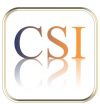Course Fee: $459 (Canadian currency)
A fully comprehensive Coaching Practitioner Certification program.
This course is designed to develop coaching skills that are crucial when a client is dealing with a crisis. It will help you better understand the nature of a crisis, the types of reactions and responses that are normal, and how to intervene – using coaching skills – in a way that is helpful and supportive for the client. Specifically, this course is designed to develop a deeper understanding of the following key areas: a crisis in the family, a crisis in a marriage or partnership, the crisis of addiction, and the crisis of suicide. We also look at PTSD, and consider how both children and adults are impacted.
You are free to commence at a time that suits your schedule and given six months to complete the course. Full tutor support is provided by a coaching mentor.Upon satisfactory completion of the course a certificate will be mailed out to you.
SYLLABUS
Module 1: Defining a Crisis
Topics Studied
- Assessing a crisis
- Categories of crisis
- Appropriate crisis intervention
- Acute Stress Disorder and Post Traumatic Stress Disorder
- What makes an effective coach
- Think before you speak
- Understanding non-verbal communication
- Brushing up on skills: Effective listening
- Reflective skills practice
Learning Outcomes and Summary of Objectives
Upon successful completion of this learning module, the student should be able to:
- Distinguish between Acute Stress Disorder and Post Traumatic Stress Disorder.
- Outline what makes an effective coach
- Discuss non-verbal communication cues.
Module 2: Dealing with a Crisis
Topics Studied
- Introducing the ABC model
- Applying the ABC model
- Common reactions to crisis and trauma
- Telephone counselling skills
- Developing a feelings vocabulary
Learning Outcomes and Summary of Objectives
Upon successful completion of this learning module, the student should be able to:
- Summarise the ABC Method of Crisis Intervention.
- List typical reactions to crisis and trauma in preschool children, school-age children, preadolescents, adolescents and adults.
- Relate some main differences between face to face coaching and telephone coaching.
Module 3: The Crisis of Violence and Abuse
Topics Studied
- An introduction to violence and abuse
- Different types of violence and abuse
- Assessment questionnaire
- Escaping a violent relationship: Safety planning
- Focussing on sexual assault and abuse
- Incest and sexual violence
- Sexual Assault Trauma Syndrome
- Incest and the sexual abuse of children
- Typical feelings experienced by victims of sexual abuse/ sexual assault
Learning Outcomes and Summary of Objectives
Upon successful completion of this learning module, the student should be able to:
- List and describe the nine different types of violence and abuse.
- Outline what’s involved in creating a safety escape plan.
- Describe the phases associated with Sexual Assault Trauma Syndrome.
Module 4: A Marriage or Partnership in Crisis
Topics Studied
- Made for intimacy
- Affairs under the microscope
- Everybody argues
- Developing conflict resolution skills
- Areas of conflict
- Conflict resolution questionnaire
- A parting of the ways
- Separation guidelines
- Kuhbler-Ross, separation and divorce
- An emotional response to separation and divorce
- Murray-Parkes, separation and divorce
- Children suffer too
Learning Outcomes and Summary of Objectives
Upon successful completion of this learning module, the student should be able to:
- List common reasons for having an affair.
- Compile strategies for successful conflict resolution.
- Illustrate how Kübler-Ross’ stages model, and Murray-Parkes’ cyclical model can be applied to separation and divorce.
Module 5: The Crisis of Addiction
Topics Studied
- Defining and categorising addictions
- Who is at risk?
- The stages of addiction
- How addictions affect our lives
- What to do when your partner is struggling with addiction
- The Preoccupation and Impact Scale
- The impact on the children
- Treatment options
- Addiction and the brain
Learning Outcomes and Summary of Objectives
Upon successful completion of this learning module, the student should be able to:
- Provide a definition of addiction.
- Explain how a habit becomes an addiction.
- Describe the effects of an addiction.
Module 6: Traumatic Death and the Crisis of Suicide
Topics Studied
- Traumatic death
- Factors affecting reactions to a death
- A look at additional complicating factors
- Tips to help survivors
- What about survivor guilt?
- Defining suicide
- High risk groups
- Don’t miss the signs
- What should the coach do?
- Dealing with ambivalent clients
- Protecting against future suicide attempts
- Structuring the crisis coaching session
- The grief of the suicide survivor
Learning Outcomes and Summary of Objectives
Upon successful completion of this learning module, the student should be able to:
- List factors affecting reactions to a death.
- Suggest ways of protecting against future suicide attempts.
- Outline how to structure a counselling session for a suicidal client.
Required reading for the course
Hall, L. (2015). Coaching in times of crisis and transformation: How to help individuals and organizations Flourish. London: Kogan Page.
Duration of the course
The course consists of six knowledge and practice-based learning modules (comprehensive course notes), supplemented with suggested background reading, reflection activities and submission of tutor-marked assignments. There is one marked assignment per module. Courses are offered on a part-time basis and are designed to be completed within six months. Many students prefer to complete their studies in a shorter time frame.
